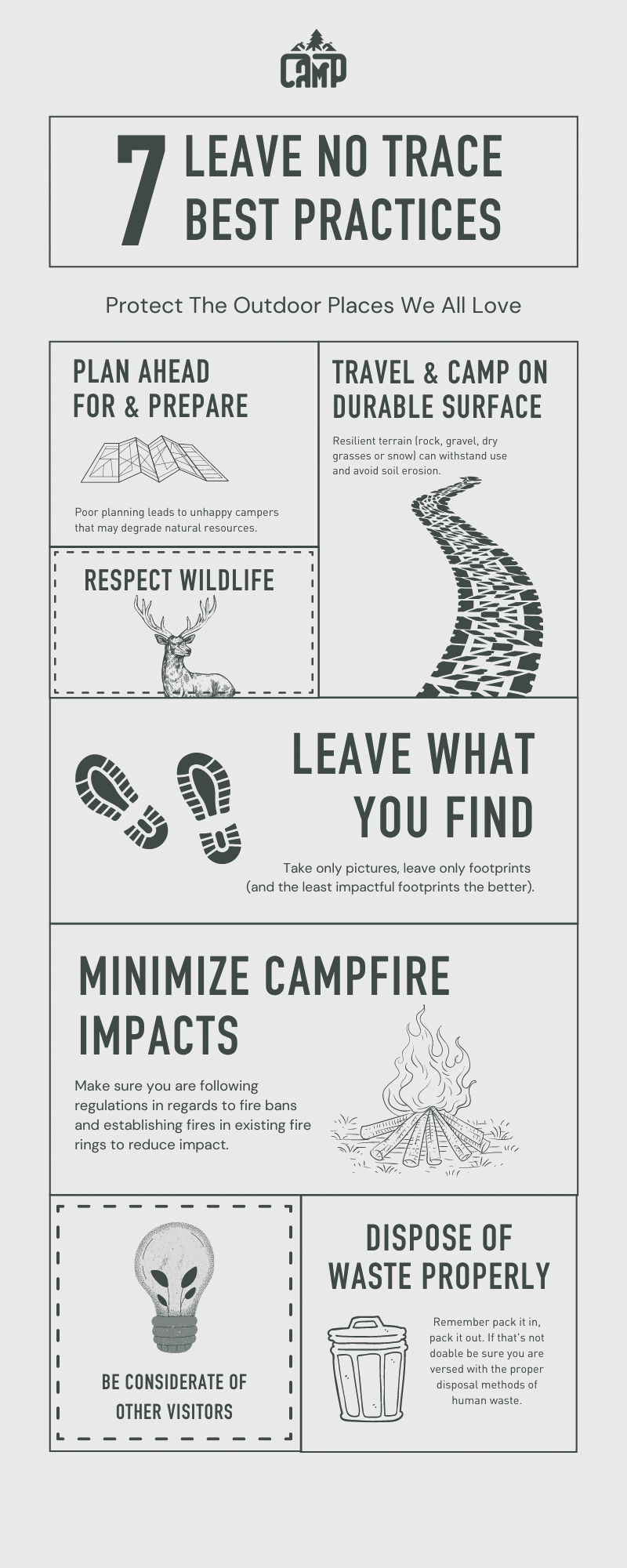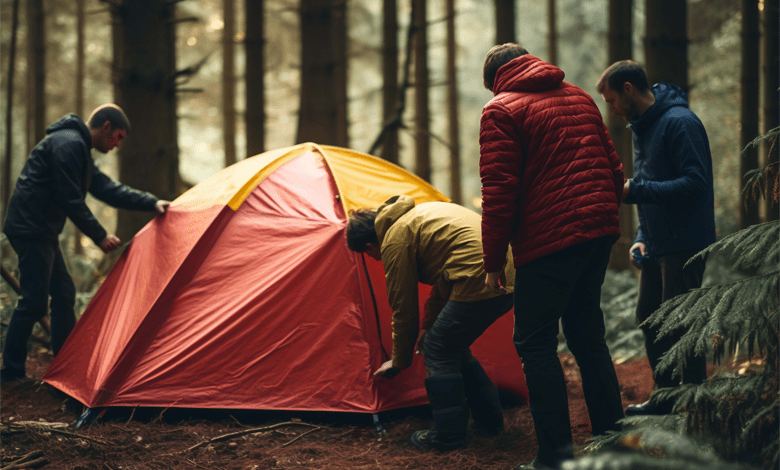Ultimate Guide to Eco-Friendly Camping in 2024: Top Destinations and Sustainable Tips
Eco-friendly camping is more than just a trend—it’s a responsible way to experience the outdoors. In 2024, nature lovers are increasingly adopting sustainable camping practices to reduce their environmental footprint. In this guide, we’ll explore the best eco-friendly camping destinations and share actionable tips to help you camp sustainably.
Why Choose Eco-Friendly Camping?
Eco-friendly camping offers an opportunity to connect with nature while minimizing your environmental impact. By following sustainable practices, campers can reduce waste, conserve resources, and protect wildlife.
-
Benefits of Eco-Friendly Camping
-
Reducing Waste
-
Eco-conscious campers significantly reduce waste by opting for reusable gear and avoiding single-use plastics.
-
-
Respect for Wildlife
-
Following Leave No Trace principles ensures that wildlife and ecosystems remain undisturbed.

Top Eco-Friendly Camping Destinations for 2024
Discover some of the best eco-conscious camping spots that embrace sustainable tourism.
-
Yosemite National Park, California
- Eco-Friendly Practices: Yosemite uses shuttle buses to reduce emissions and encourages water conservation.
A breathtaking view of Yosemite National Park.

-
Glacier National Park, Montana
- Eco-Friendly Practices: Glacier National Park runs on solar energy and has strict Leave No Trace policies.
A serene view of Glacier National Park.

-
Great Smoky Mountains, Tennessee/North Carolina
- Eco-Friendly Practices: The park has implemented recycling programs and initiatives to protect native species.
A lush forest in Great Smoky Mountains National Park.

Essential Sustainable Camping Tips
To make your camping experience more eco-friendly, follow these essential tips.
Pack Reusable Gear
Investing in reusable gear reduces your reliance on disposable items like plastic bottles and utensils.
-
Best Reusable Camping Gear
Opt for durable, long-lasting items like stainless steel water bottles and eco-friendly cooking utensils.

Leave No Trace Principles
Always adhere to Leave No Trace guidelines to minimize your impact on nature.
-
How to Follow Leave No Trace
Camp on durable surfaces, dispose of waste properly, and respect wildlife by observing from a distance.
A sign illustrating Leave No Trace principles.

How to Conserve Water and Energy While Camping
Camping sustainably involves being mindful of the resources you use.
Use Solar Power
Invest in solar-powered chargers and lights to reduce your reliance on traditional energy sources.
-
Solar-Powered Gear
A solar-powered battery charger can keep your devices charged without plugging into the grid.

Shorten Your Showers
Conserve water by using solar-heated shower bags and taking shorter showers.
-
Water Conservation Tips
Always turn off water taps completely and collect rainwater when possible.
Support Local Conservation Efforts
Get involved in local conservation initiatives to give back to the natural areas you love.
Volunteer for Clean-Ups
Many campsites organize clean-up programs to help maintain the local environment.
-
Find Conservation Programs
Research volunteer opportunities before your trip and participate in community clean-up efforts.
Image Placement: A group of volunteers participating in a clean-up event.

- Alt Text: “Volunteers cleaning up a national park.”
Eco-Friendly Camping Gear You Need in 2024
Gear up for your next trip with eco-friendly equipment that minimizes your environmental impact.
Sustainable Camping Gear
Choose gear that is durable, reusable, and made from sustainable materials.
-
Tents Made from Recycled Materials
Look for tents crafted from recycled polyester or other eco-friendly fabrics.
Image Placement: A tent made from recycled materials set up at a campsite.
- Alt Text: “Eco-friendly tent made from recycled materials.”
Sustainable Camping Meals
Reduce your camping waste by planning sustainable meals.
Choose Organic, Local Foods
Support local farmers and reduce packaging waste by purchasing organic, locally sourced food for your trip.
-
Sustainable Food Tips
Pack fresh fruits and vegetables in reusable containers instead of single-use plastic bags.
Image Placement: Fresh, organic food prepared for camping.
- Alt Text: “Sustainable camping food including fresh produce and reusable containers.”
How to Stay Safe and Respectful in Nature
Being an eco-friendly camper involves being mindful of both the environment and your safety.
Treat Wildlife with Respect
Observe animals from a distance and never feed them, as this disrupts their natural behavior.
-
Wildlife Safety Guidelines
Keep food securely stored and follow park regulations to avoid attracting wildlife.
Image Placement: A camper observing wildlife from a safe distance.
- Alt Text: “Camper safely observing wildlife from afar.”
Camp Close to Home to Reduce Your Carbon Footprint
One of the simplest ways to make your camping trip eco-friendly is to minimize travel.
Discover Local Campsites
Explore hidden gems near your home, reducing the emissions caused by long-distance travel.
-
Benefits of Local Camping
Camping closer to home also allows you to bike or hike to your campsite, further reducing your impact.
Image Placement: A local campsite surrounded by nature.
- Alt Text: “Local camping site with easy access for hikers.”
Rent or Buy Used Camping Gear
Reduce waste by renting or buying used camping gear rather than purchasing new items.
Eco-Friendly Gear Rentals
Many outdoor shops offer rental services, making it easier to enjoy camping sustainably.
-
Benefits of Renting Gear
Save money and reduce environmental impact by opting for rentals instead of buying.
Image Placement: A shop renting camping gear to eco-conscious travelers.
- Alt Text: “Used camping gear available for rent.”
Use Non-Toxic, Biodegradable Products
Switch to non-toxic, biodegradable products for cleaning and personal hygiene to protect the environment.
Best Non-Toxic Cleaning Products
Look for products that are free from harsh chemicals and safe for use in natural settings.
-
Eco-Friendly Hygiene Tips
Pack biodegradable soap, shampoo, and toothpaste to reduce water pollution.
Image Placement: A biodegradable soap and other eco-friendly hygiene products.
- Alt Text: “Non-toxic biodegradable soap used for camping.”
Conclusion
Eco-friendly camping is not only about enjoying the outdoors but also about preserving it for future generations. By choosing eco-conscious gear, following sustainable practices, and minimizing your impact, you can enjoy nature responsibly. Ready to make your next camping trip eco-friendly? Start planning now by choosing a sustainable destination and packing the right gear!